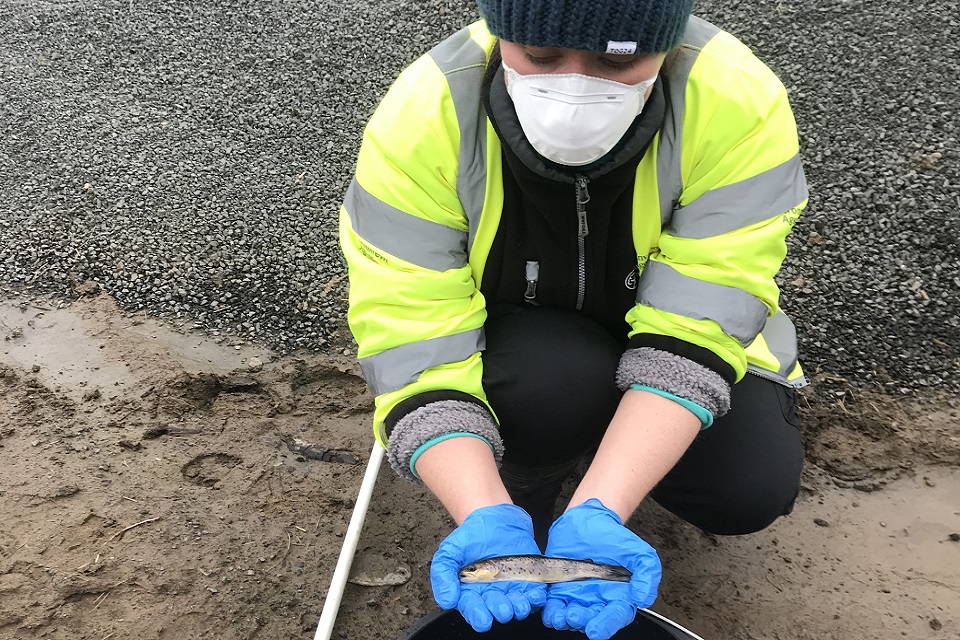The natural phenomenon, which had been expected and prepared for by the Environment Agency and its partners, saw part of the river merge into adjacent Caistron Lakes near Rothbury.
Around half of the river was flowing from the main River Coquet into the lakes area, with the stored water held in place by the lake's raised aggregate bank.
This bank has now naturally breached meaning most of the River Coquet is now flowing through the lakes area. This has not led to any increased flood risk for the area.
The River Coquet has now set a new course, depleting a 500m stretch of the original channel.

Fish rescues
Environment Agency fisheries specialists have this week been relocating fish in this cut off stretch of river to ensure their survival. Over 250 fish have been rescued and returned to the main river, including juvenile salmon, trout and lampreys. Experts are also working with Natural England to monitor the new course and any environmental impact.
Stephen Merrett, Flood Risk Operations Manager for the Environment Agency in the North East, said:
We've been closely monitoring the River Coquet over recent years and together with partners developed an incident response plan to reduce the impact on the community and environment.
The bank holding the impounded water has now breached, and as expected, the river has taken a new course. The River Coquet is a naturally wandering river and erosion, switching channels or the formation of new channels is an entirely normal occurrence.
It's a protected conservation area and so allowing this natural process to take place ensures it remains a good habitat for wildlife and environmental features.

A meeting in 2019 involving agencies including the Environment Agency, Northumberland Rivers Trust, Natural England, and landowner, fisheries and Northumberland County Council representatives, discussed the potential issues with the River Coquet and the likely future overtopping or breach.
Caistron Lakes were created many years ago when the River Coquet overtopped into a sand and gravel extraction site.
The Environment Agency had worked with Northumberland County Council to put in place additional flood risk measures in Rothbury - such as closing footpaths and car parks - should the bank breach during high river levels. These have now been removed.






